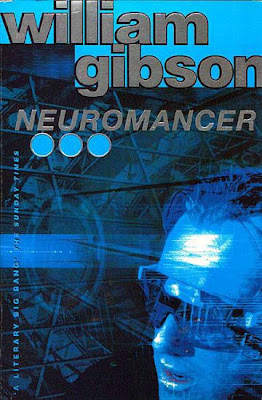
24 Dark and Light photos. Probably photoshopped but they look good.
Monthly Archives: June 2009
TBTM20090621
Juno
The Long Descent (John Michael Greer)

I bought this as soon as it was published, as I am a fan of Greer’s blog, but I hadn’t had the space to read it with any justice until last week. Summary impression: excellent, highly recommended, one of the best peak oil books, etc etc; it’s also one of the few books I’ve read on Peak Oil which starts to treat some of the spiritual aspects with any seriousness (indeed the book I hope to finish on my sabbatical is in some ways a Christian equivalent of this), and, other than a forgiveable equation of Christianity with it’s North American instantiation, he says a lot of good things on the spiritual side.
However, I do have some minor disagreements, the most important of which is that Greer holds out no hope for a high-technology future. To my mind, given the existing expenditure on infrastructure, there is no necessary reason why (in, obviously, a much reduced form) some sort of internet, for example, couldn’t be maintained indefinitely. I take the point that, eg, clean rooms for the manufacturing of chips will become virtually impossible to sustain, but I see no reason why, once the changed context is understood, the industry couldn’t make a laptop which would last for fifty or a hundred years without needing any maintenance. In other words, I think the sustainable point on the far side of Hubbert’s curve is higher up the technological scale than Greer anticipates. I suspect that there is a spiritual judgement hovering behind this; I think we’d agree that the true outcome would surprise us both.
How about this for the outline of a novel, a sort of cross between Canticle for Liebowitz and The Road (and could easily be Joseph-Campbellised): peasant boy with talent is commissioned by monastery for a task – take this book to the monks at [High Monastery in the Mountain]; boy goes through various adventures to get to High Monastery; arrives, is asked to accompany the monk into their ‘chapel’ – has to put on pure white robes – astonishingly bright white light – watches as his ‘book’ is repaired. Of course, the contemporary reader can understand that this is a laptop being repaired in the sole remaining ‘clean room’ in the entire US continent, but that needn’t be spelt out explicitly.
Worship in the Best of Both Worlds (Philip Greenslade)
One of those books that began life as PhD and it shows; but basically a very good exploration of how liturgy should be done, from an evangelical-discovering-the-wonders-of-catholicism perspective. Some excellent chapters, some where the academic apparatus drowns the point being made. Not sure I’d recommend it to anyone not already a theology graduate, which is a shame as it contains good material.
Neuromancer (William Gibson)

Good to finally read this modern classic. A bit confusing at times but you could see why it has been so influential. Came away thinking that it would make an excellent film.
An Exorcist Tells His Story (Gabriele Amorth)

Very interesting discussion and consideration of the ministry of deliverance from a traditional Catholic perspective. Amorth says that he has conducted some 33,000 exorcisms(!), of which he considers only 93 to be genuine cases of possession (bear in mind that exorcism is a diagnostic procedure). Interesting fact: the church first distinguished between demonic possession and mental illness in the late sixteenth century!! Recommended.
The Long Way (Bernard Moitessier)
Supersense (Bruce Hood)

Very interesting and stimulating book, about the nature of human reactions and perceptions to the ‘supernatural’ – and therefore where our understandings of the supernatural come from – but it was ultimately hampered by an unconscious commitment to a materialist metaphysics. Highly recommended though.
Bible books meme
I’ve been tagged by John and Doug on this.
Rules:
1. Name the five books (or scholars) that had the most immediate and lasting influence on how you read the Bible. Note that these need not be your five favorite books, or even the five with which you most strongly agree. Instead, I want to know what five books have permanently changed the way you think.
2. Tag five others.
1. John Ashton, not so much for his magnum opus as for the fact that he was my principal NT teacher, who introduced me to all the basics (form criticism, Bultmann, Sanders etc), and is therefore foundational to how I think about the study of Scripture. A good bloke too.
2. Fundamentalism, James Barr. Contemporaneously with the first, reading this was an eye-opening experience for someone who thought that the only way to read the Bible faithfully was through a fundamentalist perspective.
3. Andrew Mein, who recognised my Marcionite tendencies and took me in hand whilst at Westcott. Introduced me to some fairly important ideas, eg the Deuteronomistic history, and also got me to read Brueggemann’s Prophetic Imagination (and the rest is history). Another nice bloke – although he’s crap at Risk
4. James Alison, Faith Beyond Resentment. Was given this by a friend around five years ago and found it utterly fascinating, introduced me to Girardian ways of interpreting Scripture although I think there is more to Alison than simply a representation of Girard. The last chapter blew my mind; not sure the pieces have all been put back together yet.
5. Margaret Barker, Temple Theology who I was switched on to via another of Alison’s books, and who I am only now starting to explore properly (excitingly, she’s a speaker at Greenbelt this year), but I’m finding everything about it fascinating (even if it undermines some of my ideas about worship!).
And I’m surprised I’ve mentioned neither Tom Wright nor Eugene Peterson!
Tags: Phil, Tim G, Paul, Joe, Tim C.




